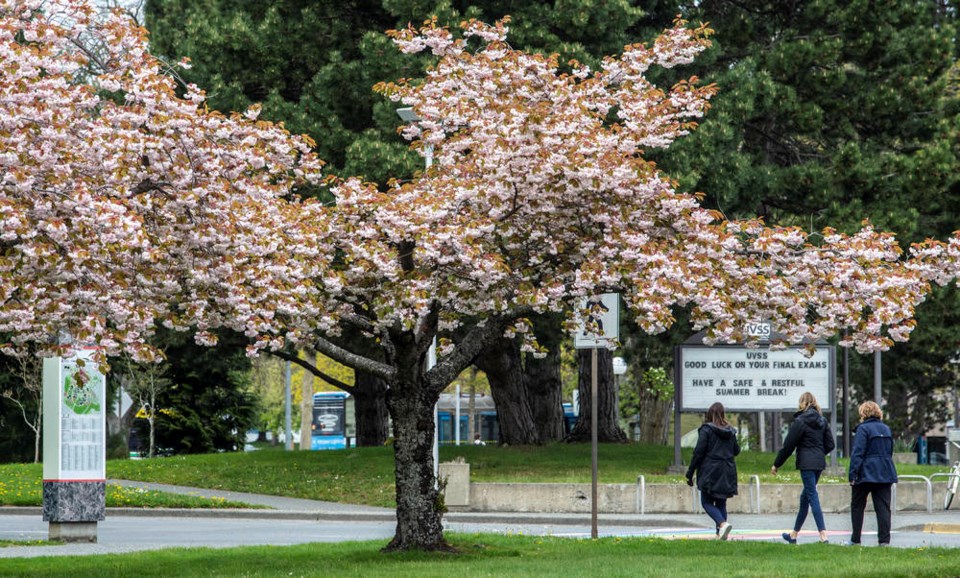University of Victoria faculty members are preparing for campus to reopen this September, but still have concerns about issues including air quality and crowding, says faculty association president Lynne Marks.
Marks joined post-secondary union leaders from around the province at a meeting with provincial health officer Dr. Bonnie Henry, other public-health officials and post-secondary administrators.
“Certainly our members want to come back in the fall if they can feel that they’re safe,” said Marks, whose association represents 860 people. “So if everyone can have two vaccinations by the beginning of August, that would make a big difference, but we’re still concerned about that.”
New COVID-19 variants are another worry, she said.
At UVic, some classes of up to 300 students are held in older buildings without great ventilation, Marks said. She and her colleagues have been told that such classes will be safe without masks or social distancing, but many aren’t convinced.
“Plus students, when they leave the classroom, there are going to be crowded hallways, then crowded stairwells.”
Marks said some faculty members would like the ability to mandate the use of masks in their classrooms, “and we’re not hearing that that’s a possibility.”
She said the faculty members don’t have any control over whether or not they return to classroom instruction.
“It is the government and our administration planning for face-to-face classes,” Marks said. “They are having some exceptions, which is mostly to accommodate — and this is good — international students who still can’t come.
“So they’re going to have some sections of classes that are online for international students.”
There could be further allowances, as well, she said. “But their plan is primarily, almost exclusively, to be face-to-face in the fall, and they say that they’re just following government mandates.”
Marks said her members would like to see more autonomy for universities to make decisions about what will happen in the fall.
At Royal Roads University, faculty association president David Black — who leads a 75-person membership — said Henry has done a remarkable job during the pandemic, and “there is a high level of confidence” that B.C. will reach herd immunity by the fall.
Concerns remain about a return to classes, including the fact that classrooms — capped at 50 people at Royal Roads — are not controlled environments, he said. “There’s a lot of people coming and going.”
But many believe campus activities can proceed “in a more-or-less normal way, even though the circumstances remain altogether extraordinary.”
That includes dorms, dining halls, classrooms, cafeterias and more, he said.
Royal Roads is expected to have about 3,000 students in September, which includes those working within an online model that was already in place before the pandemic.
The post-secondary unions said in a statement that the discussions involving public-health officials were a first for them and they look forward to more.
“The only way to properly plan for the reality of hundreds to thousands of people on campus is to speak to the front-line educators and staff who will be in direct contact with students,” the statement said.
jbell@timescolonist.com



